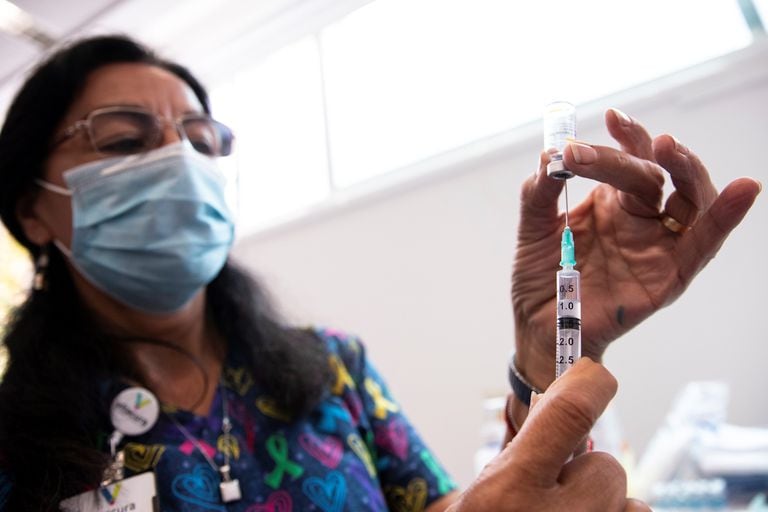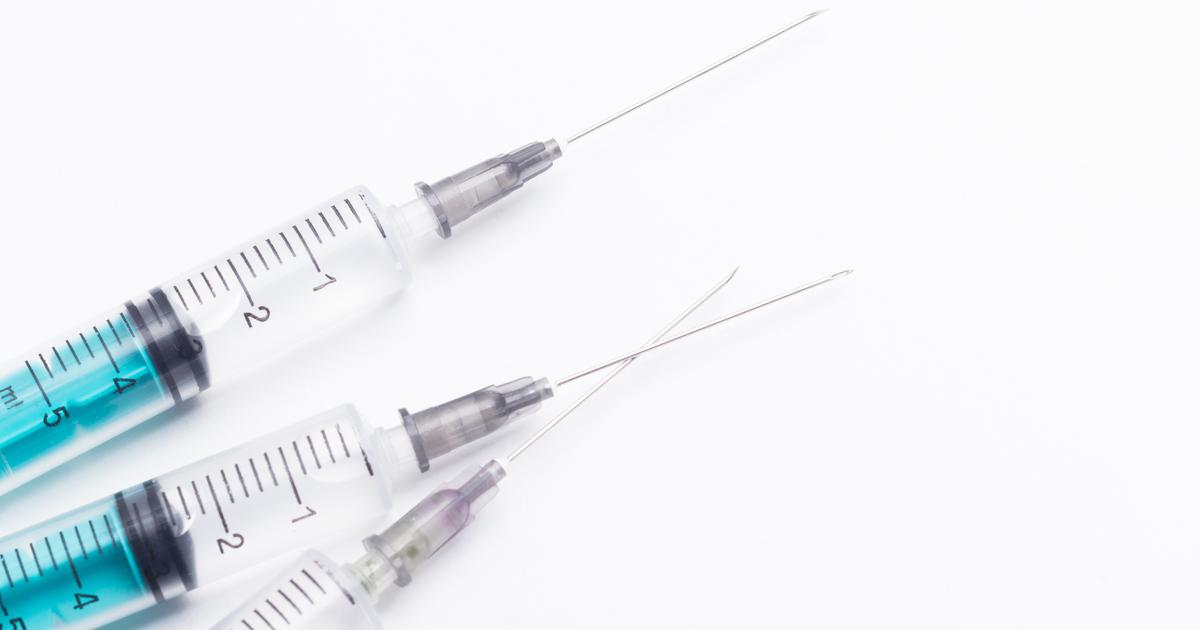A nurse prepares a vaccine from the Chinese Sinovac laboratory in a health center, in Santiago, on February 12. Alberto Valdés / EFE
Skip the line.
That is what at least 37,000 people in Chile did when they obtained the first dose of the coronavirus vaccine before other groups defined by the Government as a priority in the process, including older adults and people with chronic diseases.
A controversy that has clouded a process that has been described as exemplary by national and international experts, where until this Friday doses had been administered for 2.7 million people, thus placing the South American country as the leader in the region and fifth in the world among the countries with the best immunization rates (with 12.43 vaccines per 100 people) according to data from Our World In Data.
Specifically, there are 37,306 people who do not belong to the prioritized groups: they are not older adults, or health personnel, or residents of nursing homes, or personnel who perform essential or critical services.
At least 9,517 correspond to people between the ages of 18 and 39, according to figures from the Department of Statistics of the Ministry of Health.
Regarding the origin of those who "skipped the line", 11,669 reside in the Metropolitan Region, being La Florida, the commune that leads this indicator, with 2,886 people who do not belong to the priority groups and who received the first dose, whose administration it depends on the municipalities.
Among them, Rodolfo Carter, the mayor of the commune located in the southern part of the capital, has recognized Firefighters and Police personnel, as well as workers from free fairs and other businesses.
The situation was described as "unusual" by the Minister of Health, Enrique Paris, while the Undersecretary of Public Health, Paula Daza, assured in statements to the radio that the complaint will be investigated.
The vaccination of people who are not part of the prioritized groups adds to the controversy due to changes in the immunization schedule for chronically ill patients under 60 years of age, who would initially begin receiving doses on February 22, but were postponed to The 8th of March.
“That almost 40,000 people who do not have risk factors have been vaccinated before people who have a greater probability of becoming seriously ill and dying is losing the spirit and transparency of the process, which must always be guided by technical and medical regulations, and not due to some kind of pressure, ”says Claudia Cortés, an academic at the University of Chile.
Cortés —who cares for people living with HIV or who have been transplanted— explains that what happened not only has ethical or human implications, but that behind it there are lives that are at risk, in a scenario “having a chronic disease increases the risk of dying, regardless of your age ”.
One of the Chileans waiting for his vaccine is Víctor Hugo Robles, 52, hypertensive and who has been living with HIV since the early 1990s, at a time when antiretroviral treatment was not guaranteed in Chile.
“Vaccination is very urgent for people like me and many others who live with HIV and have comorbidities.
We do not understand and are distressed that the vaccination schedule for people with chronic diseases has been delayed.
"That there are 40 thousand healthy people, who are not qualified within the priority groups, skipping the line is the most violent and individualistic expression of this health system," adds Robles, who has appealed to justice to demand that the process of vaccination includes mechanisms to protect the privacy of people living with HIV.
Another Chilean who still does not receive his first dose is the civil engineer Luis Larraín, who at the age of 40 has been transplanted twice due to polycystic kidney disease (PKD).
“The great forgotten are the chronically ill, who were supposed to be prioritized and now we are told that we are going to start on March 8, and by age.
The truth is that I don't know when it's time to get vaccinated ”.
“We are in danger of death.
Most people who have been vaccinated and who are not older adults do not have that high probability of death.
But as chronically ill patients we are not a union, we are not organized or have a leadership, we lost in this situation, where everyone is trying to have priority ”, he claims.
Although organizations such as the Medical College asked the Government to correct the change and initiate vaccination of chronic patients in the original period, this was ruled out.
As detailed by the president of the union, Izkia Siches - who this week was highlighted among the 100 emerging leaders of the world by Time magazine - this Friday she received a call from President Sebastián Piñera, who would have explained that the new calendar would be maintained "so as not to confuse the population ”.
Siches emphasizes that immunization “must be a process that follows sanitary logic and that is respected by the entire country, without privileges or pressure groups.
Nobody can pretend to skip the line ”.
The situation of people who have been vaccinated before their time has added to the controversy that the Government faces with teachers, who refuse to return to classes on March 1 without first immunizing all personnel working in the establishments, among other conditions for a safe return.
A crisis that intensified after the Minister of Economy, Lucas Palacios, assured that "the College of Teachers all they are looking for are arguments not to work."
The Chilean vaccination plan - whose massive phase began on February 3 - contemplates that by the end of March a total of 5 million people will have received at least the first dose against covid-19, and it is expected to achieve collective immunity by the end of of the first semester of 2021. This Thursday 161 thousand doses of the Pfizer-BioNTech vaccine arrived in the country and next week another 4 million doses of the one developed by the Chinese laboratory Sinovac will be received, which has played a crucial role in the strategy of immunization.
Subscribe here to the
EL PAÍS América
newsletter
and receive all the informative keys of the region's current affairs









